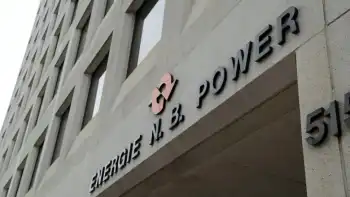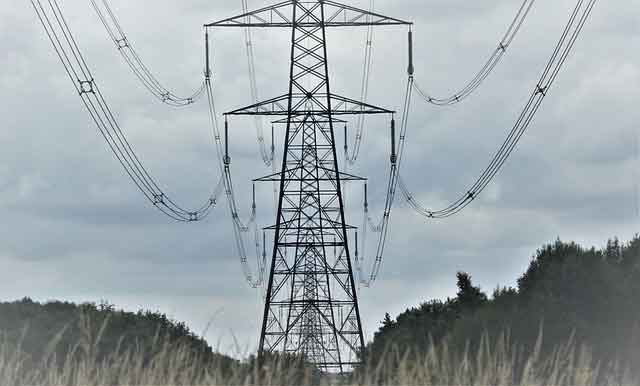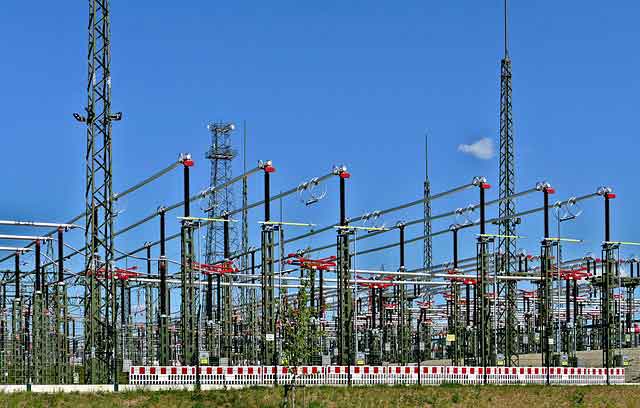Vogtle nuclear project on track: Southern
By Marietta Daily Journal
NFPA 70e Training - Arc Flash
Our customized live online or in‑person group training can be delivered to your staff at your location.

- Live Online
- 6 hours Instructor-led
- Group Training Available
The head of the Atlanta-based electric utility, one of the largest in the country, also criticized attempts by the Obama administration to tighten pollution controls on coal-fired plants, saying the industry was "under attack."
Southern Co. expects federal safety regulators to decide by the end of the year whether the utility can build two more nuclear reactors at the Vogtle Electric Generating Plant near Waynesboro. If approved, it would be the first time a power company has won permission to break ground on a nuclear plant in a generation.
Marietta voted to spend $405 million on the plants expansion in 2008.
Fanning acknowledged during a speech in Washington the ongoing disaster at the Fukushima Daiichi nuclear plant in Japan. The crisis started when a March 11 earthquake and tsunami knocked out the plant's emergency cooling system. Since then, Japanese authorities have struggled to cool the plant's nuclear reactors. The facility has been damaged by explosions and spewed radiation into the environment.
"We can't however let those events there distract us from what we must do here," Fanning said. "Nuclear power counts for about 20 percent of United States' electricity production. It provides long-term price stability and there are no harmful emissions."
Fanning said the new reactors would be built at a seismically stable site about 130 miles from the sea, meaning it's nearly impossible it could be struck by a tsunami wave.
Southern Co. operates two reactors at the Edwin Hatch Nuclear Plant near Baxley that are substantially similar to the damaged boiling-water reactors in Japan. For the new project at Plant Vogtle, Southern Co. has picked Westinghouse Electric Co.'s AP1000 reactors. Its emergency cooling system is powered by gravity, not electricity, which Fanning said makes it more robust.
"Although it's the newest technology in the nuclear industry today, it relies on one of the oldest principles: gravity," Fanning said. "No power is needed to shut down the reactor safely — just Newton's law. Our current units are safe. Our new units will be even safer."
A scientific advisory committee within the U.S. Nuclear Regulatory Commission said earlier this year that it believes the reactor can be operated safely. The NRC must still approve the reactor design — which could be used in other projects — before deciding whether to allow its installation in Georgia.
A coalition of environmental groups has questioned whether the steel containment surrounding the reactor could be vulnerable to corrosion, increasing the odds of a radioactive leak during an accident. The coalition has asked for a moratorium on approving new reactor technology until safety regulators can review the accident in Japan.
Fanning faulted the U.S. Environmental Protection Agency for proposing new rules last month limiting mercury, lead, arsenic and acid gas pollution from coal-fired power plants. He said those rules will raise electricity costs and would be imposed too quickly. Environmental and medical groups have praised the move, saying it will remove toxins from the air that contribute to respiratory illnesses, birth defects and developmental problems in children.
Fanning also criticized the EPA for trying to put limits on the greenhouse gas emissions blamed for global warming.
"When you burden the United States with higher energy prices, all you are doing is exporting jobs and reducing the growth rates for our economy and benefiting someone else," Fanning said, responding to a question.
EPA spokesman Brendan Gilfillan said for every dollar spent on pollution controls, residents will receive $5 to $13 in health benefits that include the prevention of heart attacks and premature deaths. The agency is seeking public feedback from industry, environmental and other groups before issuing proposed greenhouse gas rules this summer.











